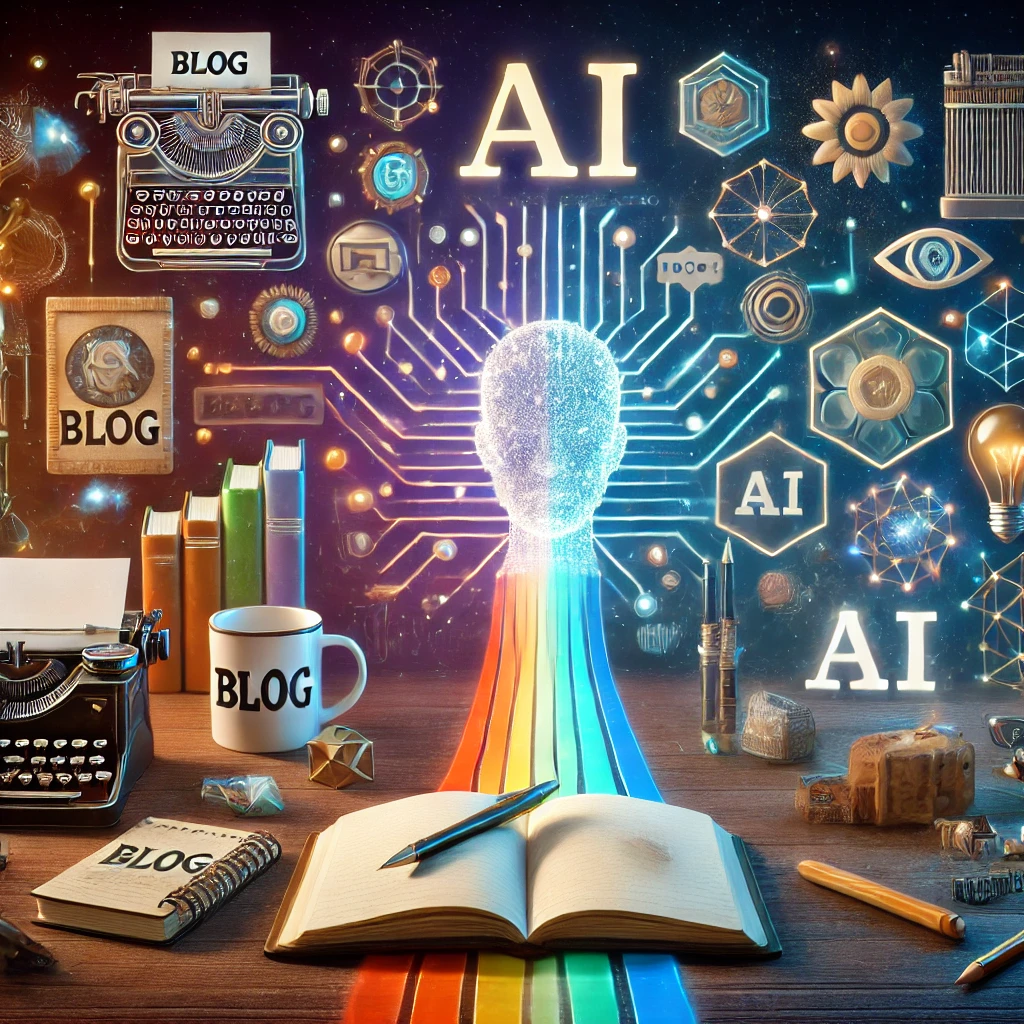
The world of content creation is undergoing a dramatic transformation, thanks to the rise of artificial intelligence (AI). From AI-assisted writing tools to fully autonomous content generators, AI has redefined how we create, curate, and consume information. As we enter a new era, understanding the content creation spectrum in the AI age is crucial for content creators, marketers, businesses, and consumers alike.
This article delves into the evolution of content creation, explores how AI fits into this spectrum, and discusses the benefits, challenges, and future trends of AI-driven content. Whether you are a writer, a business owner, or someone looking for a cheap ebook writing service, this guide will offer valuable insights into how AI is reshaping the landscape of digital content.
The Evolution of Content Creation
Traditional Content Creation
Before the digital age, content creation was a labor-intensive process that relied solely on human creativity and skill. Writers, designers, video producers, and marketers spent countless hours developing high-quality content. This traditional model, while capable of producing exceptional work, had limitations in terms of time, cost, and scalability. Writers needed extensive research and editing, while designers and video producers required significant resources to bring their visions to life.
Even in the early days of digital content, the process remained largely manual, with tools like word processors and design software offering limited assistance. Creators faced challenges in producing content quickly and affordably without sacrificing quality.
Rise of Digital Tools and Early Automation
The introduction of digital tools and early automation helped streamline some aspects of content creation. Content management systems (CMS), design software, and early algorithms allowed for faster editing, formatting, and even some level of content automation. However, the core creative process—developing ideas, writing compelling stories, or creating visually appealing designs—remained human-centric.
It wasn’t until the advent of AI that we saw a significant leap in automation’s role in content creation, allowing for faster, more efficient workflows and even content generation on a previously unimaginable scale.
Defining the AI Content Creation Spectrum
AI-Assisted Content Creation
AI-assisted content creation refers to tools that enhance human creativity and productivity. These tools don’t replace human input; rather, they provide assistance to make the content creation process smoother and more efficient. For example, AI-powered grammar checkers, such as Grammarly, help writers refine their work by identifying grammatical errors and suggesting stylistic improvements.
In design, AI tools offer layout suggestions, color palettes, and even automatic resizing for different platforms. These tools enable creators to focus on more strategic and creative aspects of their work while AI handles routine tasks.
For writers and businesses looking for cost-effective solutions, AI-assisted tools also benefit those seeking services like a cheap ebook writing service, where AI can be used to speed up the process of drafting and formatting.
AI-Generated Content
AI-generated content represents a major leap forward in automation. With advancements in natural language processing (NLP), AI can now generate written content, create visual designs, and even produce videos with minimal human intervention. For example, AI-powered writing tools like OpenAI’s GPT can produce entire articles, reports, and social media posts based on a few prompts.
Similarly, AI-generated designs and videos are gaining popularity. AI tools like Canva or Lumen5 allow users to generate visuals and video content by simply inputting text or choosing a template. While AI-generated content is often quick and affordable, its quality and originality may sometimes fall short of human-created work. This is why many content creators still combine AI-generated content with human oversight to ensure the final product meets high standards.
For businesses seeking a cheap ebook writing service, AI-generated content offers an affordable solution for producing large volumes of content quickly. However, these services should be complemented with human editing to ensure coherence and quality.
AI-Curated Content
AI-curated content is another essential element of the content creation spectrum. Rather than creating new content, AI curates existing content, delivering personalized recommendations based on user preferences. Streaming platforms like Spotify and Netflix, for example, use AI algorithms to curate playlists and suggest shows or movies based on past behavior.
AI content curation is valuable for users who want tailored experiences and for businesses looking to offer personalized content. It helps in organizing vast amounts of content, ensuring that users receive the most relevant material.
The Benefits of AI in Content Creation
Efficiency and Speed
One of the most significant advantages of AI in content creation is its efficiency. AI can produce content at a speed that would be impossible for humans to match. Whether it’s generating blog posts, designing social media graphics, or creating personalized video ads, AI significantly reduces the time it takes to complete these tasks.
For example, a business that needs an ebook written quickly might turn to a cheap ebook writing service powered by AI. These services can draft entire chapters, organize content, and format the ebook in a fraction of the time it would take a human writer to do so.
Cost-Effectiveness
AI-driven content creation is often more cost-effective than traditional methods. By automating repetitive tasks and speeding up the creative process, AI allows businesses to produce high-quality content without the need for large teams or high costs.
This is particularly beneficial for small businesses, startups, and individuals who need affordable content solutions. For example, a cheap ebook writing service powered by AI can deliver professional-quality ebooks at a fraction of the cost of hiring a human writer, editor, and designer.
Personalization
AI excels at personalizing content based on user data. From customized email marketing campaigns to personalized shopping recommendations, AI helps businesses engage with their audiences on a deeper level. This personalized approach not only enhances the user experience but also increases conversion rates and customer loyalty.
Challenges and Ethical Concerns
Quality Control
While AI-generated content is efficient, it sometimes lacks the depth and creativity of human-created content. AI can produce grammatically correct sentences and follow basic guidelines, but it often struggles with nuance, tone, and emotional resonance. This makes human oversight critical to ensuring the quality of AI-generated content.
For example, if a business uses a cheap ebook writing service that relies on AI, it’s essential to have a human editor review the content to ensure it flows logically and engages readers effectively.
Plagiarism and Copyright Issues
AI-generated content may unintentionally reuse phrases or ideas from existing sources, raising concerns about plagiarism and copyright infringement. As AI tools rely on vast datasets for training, there’s always a risk that the content they generate could mirror pre-existing work. Ensuring that AI content is original and properly attributed is an ongoing challenge.
Job Displacement and Human Creativity
As AI takes over more aspects of content creation, there’s growing concern about job displacement. Writers, designers, and marketers may feel threatened by AI’s ability to produce content quickly and at a lower cost. However, the goal of AI should be to complement human creativity, not replace it. AI can handle routine tasks, freeing up humans to focus on more strategic, creative, and emotionally resonant work.
Balancing Human and AI Collaboration
AI as a Creative Partner
Rather than viewing AI as a competitor, content creators should see it as a creative partner. AI can handle mundane tasks, allowing humans to focus on ideation, storytelling, and innovation. For example, AI can generate the first draft of an ebook, while a human writer refines the language and adds creative flair.
Strategic Use of AI in Content Creation
The key to successful content creation in the AI age is knowing when to use AI and when to rely on human expertise. AI is best suited for tasks that require speed, scalability, and data analysis, while humans excel in areas that demand creativity, empathy, and critical thinking.
By striking the right balance between AI and human input, content creators can produce high-quality work that meets the demands of modern audiences.
Future Trends in AI-Driven Content Creation
Advances in Natural Language Processing (NLP)
As AI continues to evolve, we can expect significant advances in natural language processing. AI will become more adept at understanding and generating human-like text, producing content that’s indistinguishable from that written by humans. This will open up new possibilities for content creation, particularly in areas like customer service, marketing, and technical writing.
AI in Visual and Video Content
AI is also poised to revolutionize visual and video content. AI-driven tools will make it easier to produce professional-quality videos, animations, and graphics at a fraction of the cost and time. This will democratize content creation, allowing individuals and small businesses to compete with larger players.
AI-Driven Content in Niche Industries
AI’s role in content creation will extend to niche industries, such as healthcare, legal services, and education. AI-driven content creation tools will enable professionals in these fields to generate specialized content quickly and accurately, helping them serve their clients and audiences more effectively.
Conclusion
The content creation spectrum in the AI age offers unprecedented opportunities for efficiency, cost savings, and personalization. From AI-assisted tools to fully autonomous content generators, AI is reshaping how we create and consume content. However, it’s essential to recognize the challenges and ethical concerns that come with AI-driven content, including quality control, plagiarism risks, and the potential for job displacement.
By embracing AI as a creative partner rather than a replacement, content creators can harness the power of AI while maintaining the human touch that makes content truly engaging. Whether you’re a writer looking to enhance your productivity or a business in need of a cheap ebook writing service, AI offers innovative solutions to meet your content needs in the modern age.




